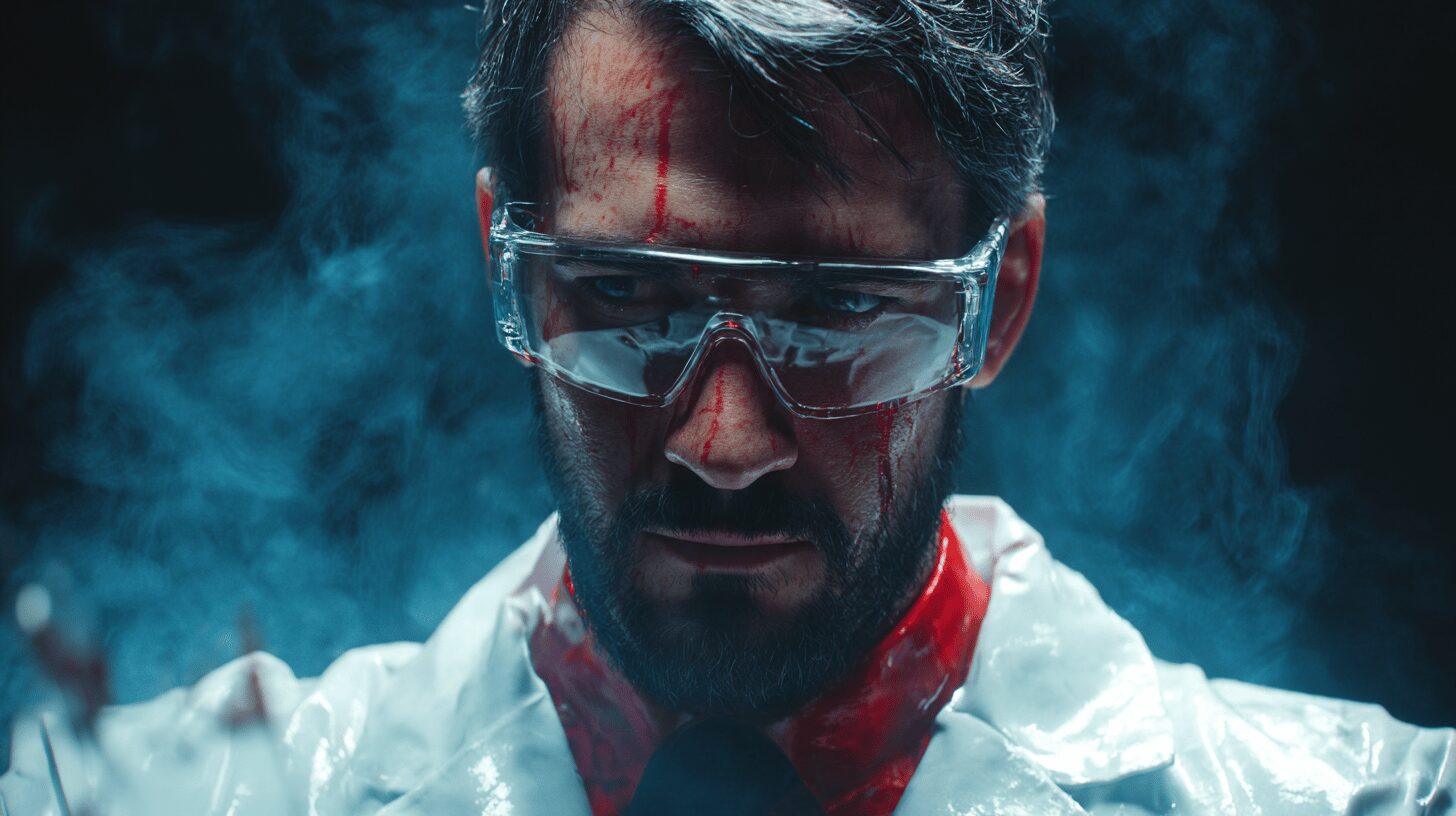For more than two decades, the author of Question Everything examined the world through the disciplined lens of science. Chemistry demanded precision, verifiable results, and a refusal to accept claims without evidence. Yet the deeper he looked—not just into the structure of molecules but into the structure of society—the more he discovered that the same rigor applied to science was conspicuously absent in the institutions shaping public belief.
What began as a career in water treatment gradually became an education in deception.
From Laboratory Precision to Public Illusion
In chemistry, facts are stubborn things. A reaction either occurs or it doesn’t. A contaminant can be measured, a variable isolated, an outcome repeated. But outside the lab, the same clarity rarely exists.
The chemist learned that “facts” in mainstream discourse are often manufactured commodities—polished and distributed not to enlighten, but to manage perception. Press releases are dressed as peer review; talking points masquerade as data. The conclusion comes first, and the evidence is arranged later.
When he questioned those conclusions—about water safety, health policy, or economics—the answers he received were rarely scientific. They were political, financial, or fear-based. It was a pattern that repeated everywhere he looked: what was marketed as truth served someone’s balance sheet.
The Architecture of Manufactured Belief
Today’s information systems resemble a finely tuned reaction chamber: inputs carefully controlled, outputs measured for profitability. Major networks, corporate labs, and academic institutions often share the same investors. The result is an echo chamber dressed in credentials. dissenting voices are labeled “misinformation” not because they are wrong, but because they are unprofitable or inconvenient.
Most citizens never notice how effectively perception can be engineered. A few well-placed “experts,” the repetition of comforting phrases, and selective omission can shift public opinion faster than any catalyst shifts a reaction. The purpose isn’t to inform—it’s to stabilize the system that generates revenue and obedience.
Why So Many “Facts” Fail Basic Logic
When data cannot be questioned, it ceases to be science. True inquiry thrives on falsifiability—the freedom to test, disprove, and refine. Yet our era punishes the act of asking. Algorithms throttle dissent, funding dries up for unapproved hypotheses, and reputations are destroyed for the crime of curiosity.
This is why mainstream narratives so often collapse under critical analysis. Health advice that contradicts basic biochemistry. Economic forecasts detached from mathematical reality. Political “consensus” that shifts overnight with the advertising budget. The moment one compares official statements to observable results, contradictions multiply.
The chemist’s conclusion was unavoidable: the problem wasn’t ignorance. It was design. Ignorance is random; design is consistent. The misinformation patterns were too coordinated, too aligned with vested interests, to be accidental.
The Practical Consequences of Collective Deception
A society built on managed perception pays a high price. When profit eclipses principle, every institution begins to corrode. The medical system becomes dependent on lifelong customers rather than cures. Financial markets detach from tangible value, rewarding speculation over productivity. Technology promises liberation but delivers surveillance.
The average citizen, chasing stability, ends up trapped in dependency—dependent on debt, prescription drugs, entertainment, and “experts” who interpret reality on their behalf. Freedom erodes quietly, replaced by convenience. People no longer ask “Is it true?” but “Is it approved?”
For the chemist-turned-investigator, this realization was the turning point. If the public could be conditioned to accept contradictions without question, then regaining critical thought became the ultimate act of rebellion.
The Investigative Mindset: Relearning How to See
The scientific method—observe, hypothesize, test, repeat—remains the best defense against deception, provided it’s applied honestly. That method now guides every episode of Question Everything. Each topic begins with a simple premise: if a claim cannot withstand scrutiny, it deserves to fall.
Instead of preaching conclusions, the show reconstructs the habit of analysis. Who benefits from this narrative? Who funds the research? What data was excluded, and why? The goal isn’t cynicism—it’s clarity. Skepticism, properly applied, is an act of love for truth, not hatred of institutions.
The irony is that true science and true philosophy share the same root: curiosity. Both demand humility—the admission that one might be wrong—and both despise propaganda disguised as certainty.
Reclaiming Reality in the Age of Automation
As artificial intelligence advances, the battle for perception enters a new phase. AI systems now generate headlines, academic abstracts, and even political speeches. The line between information and simulation blurs. If the public already struggles to separate truth from narrative, what happens when algorithms refine deception at machine speed?
The chemist’s warning is simple: without individual discernment, automation becomes indoctrination. Technology magnifies intention—whether for control or for enlightenment. The only safeguard is a population that questions the input before accepting the output.
Toward an Ethic of Intellectual Independence
Questioning everything does not mean rejecting everything. It means refusing to outsource thinking. It means weighing evidence over authority, principles over popularity, and long-term consequences over short-term gain. It means recognizing that truth, like chemistry, remains constant whether or not it is fashionable.
If humanity is to navigate the turbulence of the next decade—economic instability, technological disruption, and institutional decay—it must rediscover the courage to think for itself. Every citizen must, in effect, become an investigator.
The chemist’s journey is simply a mirror for what anyone can do: observe, compare, test, and follow the data wherever it leads. The process may dismantle comforting illusions, but it rebuilds something stronger—authentic understanding.
A Closing Reflection
There is a quiet dignity in pursuing truth when lies are more profitable. It demands patience, self-education, and moral stamina. But every era depends on those willing to perform that work. They are the antibodies of civilization—the ones who notice when the system’s chemistry turns toxic.
Question Everything exists to amplify that impulse: to gather the thinkers, the doubters, and the honest skeptics who would rather face reality than live inside a managed illusion. In the end, that is the chemist’s final experiment—the transformation of confusion into clarity, and of obedience into awareness.
“Truth doesn’t fear investigation; only lies demand protection.”


Leave a Reply